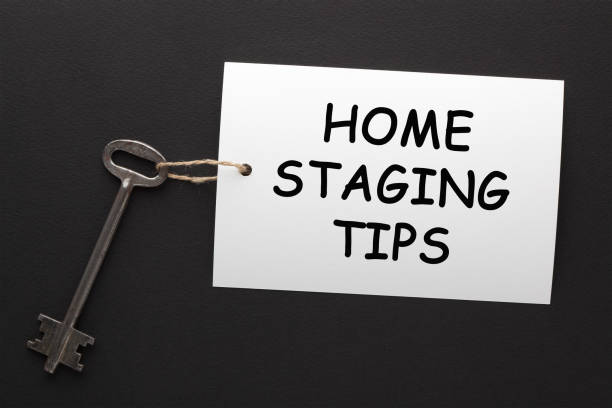Closing a real estate deal is a critical moment in any property transaction. It’s the point where months of effort, negotiation, and paperwork culminate into a successful sale or purchase. According to the National Association of Realtors (NAR), 87% of buyers and sellers emphasize that a smooth closing experience significantly affects their overall satisfaction. Yet, many deals stumble or fail due to overlooked details or poor preparation. The real estate market is dynamic, with trends shifting rapidly, and buyers becoming more informed than ever. How can you ensure your deal closes without a hitch? What are the exact steps to follow to avoid costly mistakes and delays? In this comprehensive guide, we’ll walk through nine essential steps you must take to close your real estate deal successfully.
—
Step 1: Prepare Thoroughly Before Starting

Preparation is the cornerstone of any successful real estate transaction. It’s not just about having documents ready; it’s about understanding the market, knowing your goals, and anticipating challenges.
Understand the Market Conditions
Real estate markets fluctuate based on economic factors, interest rates, and local demand. For example, a 2023 study by Harvard’s Joint Center for Housing Studies highlights that rising mortgage rates can cool buyer demand, making it crucial to time your sale or purchase carefully. Use reliable sources like the National Association of Realtors’ monthly reports or local MLS data to analyze trends in your area.
Know Your Financial Position
Whether you are buying or selling, understanding your finances is vital. Sellers should know their mortgage payoff amount, tax implications, and any liens on the property. Buyers need to check credit scores, get pre-approved for loans, and understand their budget limits. According to Experian, 77% of buyers who get pre-approved close deals faster and with fewer surprises.
Organize Your Documents
Having all paperwork in order saves time and builds trust. Sellers should prepare title deeds, tax records, inspection reports, and any warranties for appliances or renovations. Buyers should gather proof of funds, pre-approval letters, and identification documents.
> Expert Insight: “Preparation reduces friction and accelerates the closing process,” says Barbara Corcoran, real estate investor and TV personality. “The more you know and have ready, the less chance there is for delays.”
—
Step 2: Set the Right Price Using Data
Pricing a property correctly is a delicate balance. Too high, and the property lingers unsold. Too low, and you leave money on the table.
Use Comparative Market Analysis (CMA)
A CMA compares your property to similar homes recently sold in the neighborhood. It considers size, age, condition, and location. Real estate agents often provide CMAs to help sellers set competitive prices. Zillow research shows that homes priced within 5% of market value sell 30% faster.
Consider Market Trends and Seasonality
The time of year affects pricing and buyer interest. Spring and summer often see more activity, while winter months may slow sales. Adjust your price expectations accordingly. Also, factor in economic conditions like inflation or interest rate changes.
Factor in Property Condition and Upgrades
Upgrades like new roofing, modern kitchens, or energy-efficient windows can justify higher prices. Conversely, properties needing repairs might require a price reduction or seller concessions.
> “Price is the first impression buyers get. Make it count by being realistic and data-driven,” advises Lawrence Yun, Chief Economist at the National Association of Realtors.
—
Step 3: Choose a Skilled Real Estate Agent
A great agent is more than a salesperson—they are your guide, negotiator, and problem solver.
What to Look For in an Agent
- Local Expertise: Agents familiar with your neighborhood understand pricing, buyer preferences, and legal requirements.
- Track Record: Check how many deals they close annually and their average days on market.
- Communication Skills: You need someone responsive and clear in updates.
- Marketing Savvy: Agents who use professional photography, digital marketing, and social media can attract more buyers.
How to Find the Right Agent
Interview multiple candidates. Ask about their strategies, recent sales, and how they handle challenges. Request references from past clients.
> Research Insight: According to NAR’s 2024 report, 89% of buyers and sellers who used an agent were satisfied with the process, compared to 65% who tried to go it alone.
—
Step 4: Market the Property Effectively
Marketing is your chance to make a great first impression and attract qualified buyers.
Use Professional Photography and Virtual Tours
High-quality images and 3D virtual tours allow buyers to explore the property online. Homes with professional photos sell faster and for higher prices, according to a study by Redfin.
Write Compelling Listings
Highlight unique features, neighborhood benefits, and recent upgrades. Use clear, engaging language that helps buyers visualize living there.
Leverage Online Platforms and Social Media
Most buyers start their search online. List your property on popular sites like Zillow, Realtor.com, and local MLS. Use Facebook, Instagram, and even TikTok to reach younger buyers.
Host Open Houses and Private Showings
Open houses create buzz and allow multiple buyers to view the property simultaneously. Private showings cater to serious buyers who want a personal tour.
—
Step 5: Conduct Professional Property Showings
Showings are your chance to showcase the home’s best qualities and answer buyer questions.
Prepare the Property
Clean thoroughly, declutter, and stage rooms to highlight space and functionality. Small touches like fresh flowers or pleasant scents can make a difference.
Be Flexible and Accommodating
Offer multiple time slots, including evenings and weekends. The easier it is for buyers to visit, the more interest you generate.
Communicate Effectively
Provide buyers with brochures or fact sheets. Be honest about any issues but emphasize solutions or upgrades.
> Expert Tip: “Transparency builds trust. Buyers appreciate honesty about the property’s condition,” says Tom Ferry, a top real estate coach.
—
Step 6: Negotiate Offers with Care
Negotiation is a critical step where patience and strategy pay off.
Understand Buyer Motivations
Is the buyer looking for a quick move-in or a bargain? Knowing their priorities helps tailor your negotiation approach.
Use Win-Win Techniques
Aim for solutions that satisfy both parties. For example, if buyers want a lower price, consider offering to cover closing costs instead.
Stay Calm and Professional
Avoid emotional reactions. Keep discussions focused on facts and contract terms.
Know When to Walk Away
If terms become unreasonable, be prepared to reject offers. Sometimes, waiting for a better offer is the best move.
—
Step 7: Sign the Preliminary Agreement
This step formalizes the deal and sets the stage for closing.
What is Included?
The preliminary agreement outlines the sale price, contingencies, closing date, and responsibilities of each party.
Legal Review
Have a real estate attorney or professional review the contract to ensure clarity and fairness.
Earnest Money Deposit
Buyers typically provide a deposit to show serious intent. This money is held in escrow and applied to the purchase price.
—
Step 8: Confirm Financing and Clear Contingencies
Ensuring financing and meeting contract conditions is essential before closing.
Financing Approval
Buyers must secure loan approval. Sellers should verify this through pre-approval letters or lender communication.
Home Inspections and Repairs
Inspections identify issues. Negotiations may follow to decide who pays for repairs or credits.
Appraisal
Lenders require appraisals to confirm property value matches loan amount.
Title Search and Insurance
A title company verifies ownership and checks for liens or claims. Title insurance protects against future disputes.
—
Step 9: Close the Deal Smoothly
The closing is the final step where ownership officially transfers.
What Happens at Closing?
Both parties sign documents, funds are transferred, and the deed is recorded with local authorities.
Final Walkthrough
Buyers usually do a last walkthrough to ensure the property’s condition hasn’t changed.
Closing Costs
These include fees for title insurance, attorney services, taxes, and lender charges. Both parties should understand their responsibilities.
Celebrate Completion
Once signed and recorded, the deal is done. Keys are handed over, and the new owner takes possession.
—
Frequently Asked Questions (FAQs)
Q1. How long does closing usually take?
A: Typically, 30 to 45 days after accepting an offer, depending on financing and inspections.
Q2. What are common contingencies?
A: Financing approval, home inspection, appraisal, and sale of the buyer’s current home.
Q3 Can I negotiate after signing the preliminary agreement?
A: Only if contingencies allow. Otherwise, changes require mutual consent.
Q4. What if the buyer backs out?
A: Earnest money may be forfeited depending on contract terms and reasons for withdrawal.
Q5. How can I speed up closing?
A: Get pre-approved, respond quickly to requests, and ensure all documents are ready.
—
Mastering the Art of Closing Real Estate Deals
Closing a real estate deal successfully requires a blend of preparation, knowledge, and communication. Each step builds on the previous one, creating a smooth path from listing or offer to final sale. By following these nine detailed steps, you reduce risks, avoid delays, and increase your chances of a satisfying outcome.
Real estate is not only about properties; it’s about people, timing, and trust. Are you ready to apply these expert-backed strategies and close your next deal with confidence?
—
External Resources for Further Reading
– [National Association of Realtors – Research & Statistics](https://www.nar.realtor/research-and-statistics)
– [Zillow Research – Housing Market Trends](https://www.zillow.com/research/)
– [Harvard Joint Center for Housing Studies](https://www.jchs.harvard.edu/)
– [HUD – Home Buying Process](https://www.hud.gov/topics/buying_a_home)
– [FortuneBuilders – Real Estate Negotiation Tips](https://www.fortunebuilders.com/real-estate-negotiation/)










wtz5m1
q6john
5h5l99
se27cu
k557mq